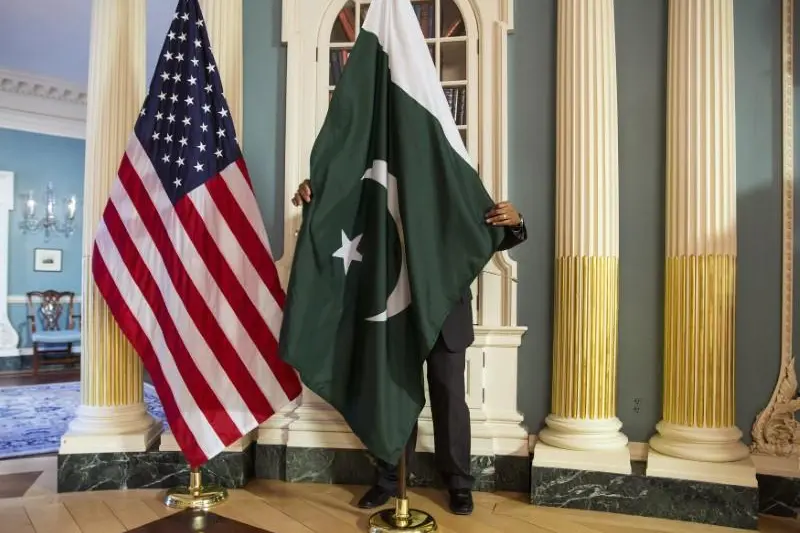PHOTO
ISLAMABAD: After days of speculation, Pakistan’s Ministry of Foreign Affairs confirmed during a news conference on Thursday that the United States had informed its officials that Pakistani diplomats in the US will face travel restrictions.
“We have received official communication regarding certain measures that the US intends to implement with effect from May 1, 2018,” Foreign Ministry spokesman Dr. Mohammad Faisal said during his weekly news briefing.
Pakistan’s envoys in the US will only be able to travel within a 40 kilometer radius of the city in which they are posted. To go any further, they will have to inform authorities of their plans and request permission.
On Tuesday, US Under Secretary of State for Political Affairs Thomas Shannon said during an interview that Washington would implement travel restrictions that are “reciprocal” to restrictions already imposed by Islamabad that prevent American diplomats from visiting the tribal belt or Karachi. He played down the move, saying it was “common in diplomacy.”
Former diplomat Javed Hafiz described the US decision as “unusual and unfortunate.”
“The basic duty and function of a diplomat is to promote relations, may it be any area of cooperation, and for that the diplomat has to travel all over,” he said.
“Both governments will have to review this very carefully because this can negatively impact their long-standing relations.”
US-Pakistan relations soured last year after President Donald Trump criticized and humiliated Washington’s “major non-NATO ally” by questioning its commitment to fighting terrorism, cutting aid and placing it on various sanctions lists.
The restrictions stem from a growing lack of trust and a number of incidents, including the 2011 US Navy SEAL raid in Abbottabad during which Osama Bin Laden was killed, which was carried out without Pakistan’s knowledge.
Meanwhile, Islamabad High Court sought a report on Wednesday from Pakistan’s Attorney General to place US Defense and Air Attaché Col. Joseph Emanuel Hall on the Federal Investigation Agency’s Exit Control List, which would bar him from leaving the country.
The diplomat was the driver of a vehicle that jumped two red traffic lights at an intersection on main Margalla road and hit motorcyclist Ateeq Baig and his pillion rider Raheel Ahmed. Baig died, while Ahmed suffered a broken leg and other injuries.
The presiding judge, Justice Amir Farooq, pointed out that diplomatic immunity does not give anyone a license to kill.
“Him being a diplomat does not mean he can kill our citizens…if our law protects him, it protects our citizens too,” said the judge.
He also reprimanded police officials for mishandling the case and ignoring proper procedures.
“In such circumstances, alcohol tests are conducted but the police failed to conduct any, wasting any evidence that could have been found,” he said.
A US embassy spokesperson denied that Hall was driving under the influence of alcohol and added: “We are in close contact with the relevant Pakistani officials.”
What caused Hall to jump the traffic lights remains unclear.
Legal expert Sharafat Ali said that under the Vienna Convention and 1972 Diplomatic and Consular Privileges Act, it is not possible for a court to extend its legal jurisdiction or place a travel ban on a diplomat.
“The diplomat cannot be prosecuted (in the host country) and enjoys immunity from criminal jurisdiction, unless the US (the sending state) decides otherwise,” said Ali.
Faisal, the Foreign Office spokesman, also pointed out on Thursday that under “Articles 31 and 32 of the Vienna Convention on Diplomatic Relations 1961, which...deal with diplomatic immunity,” the possibility of holding Hall in Pakistan for criminal proceedings was unlikely.
“We are awaiting the outcome of preliminary investigations from the Islamabad Police, based on which further action will be initiated,” he added.
Copyright: Arab News © 2018 All rights reserved. Provided by SyndiGate Media Inc. (Syndigate.info).





















